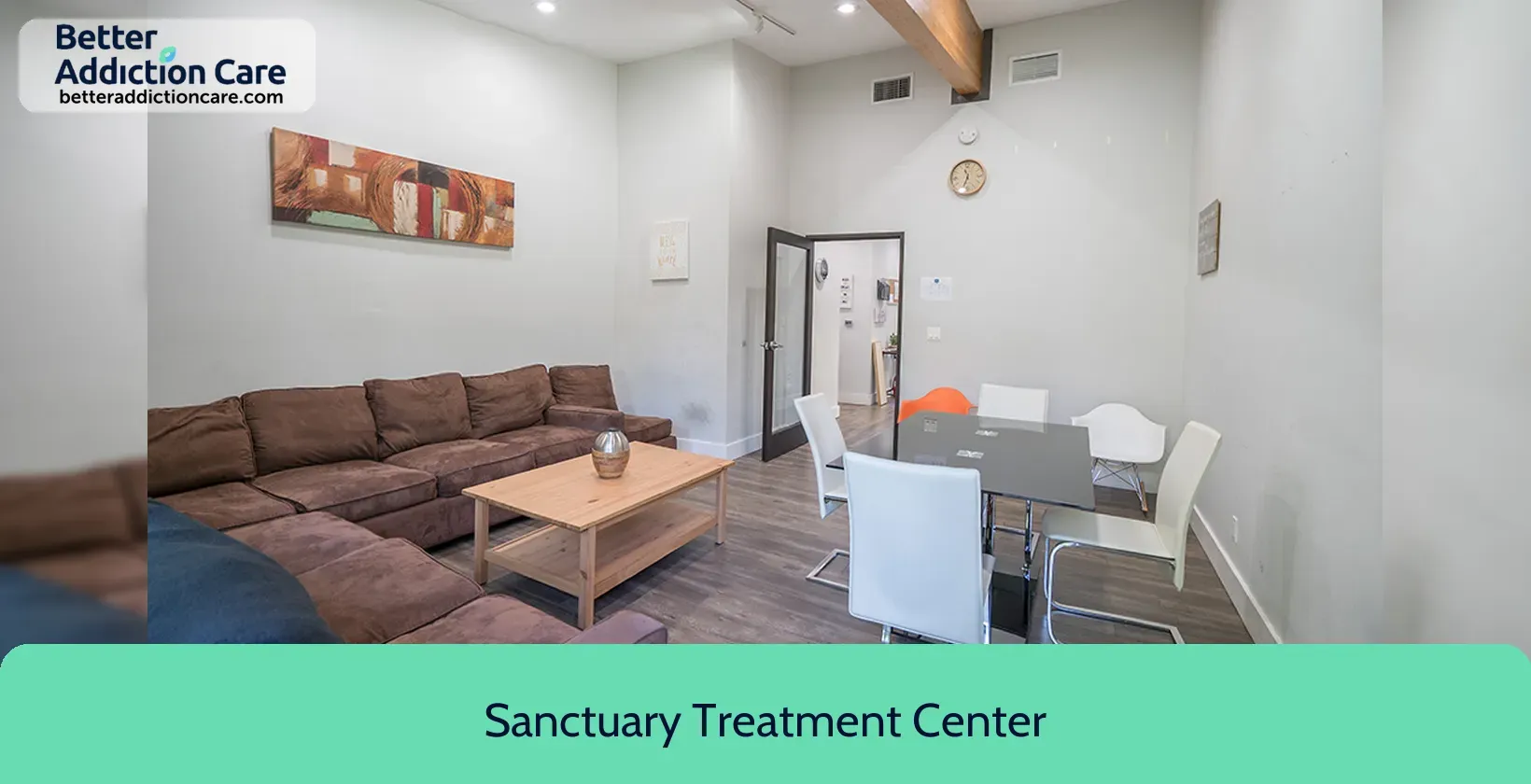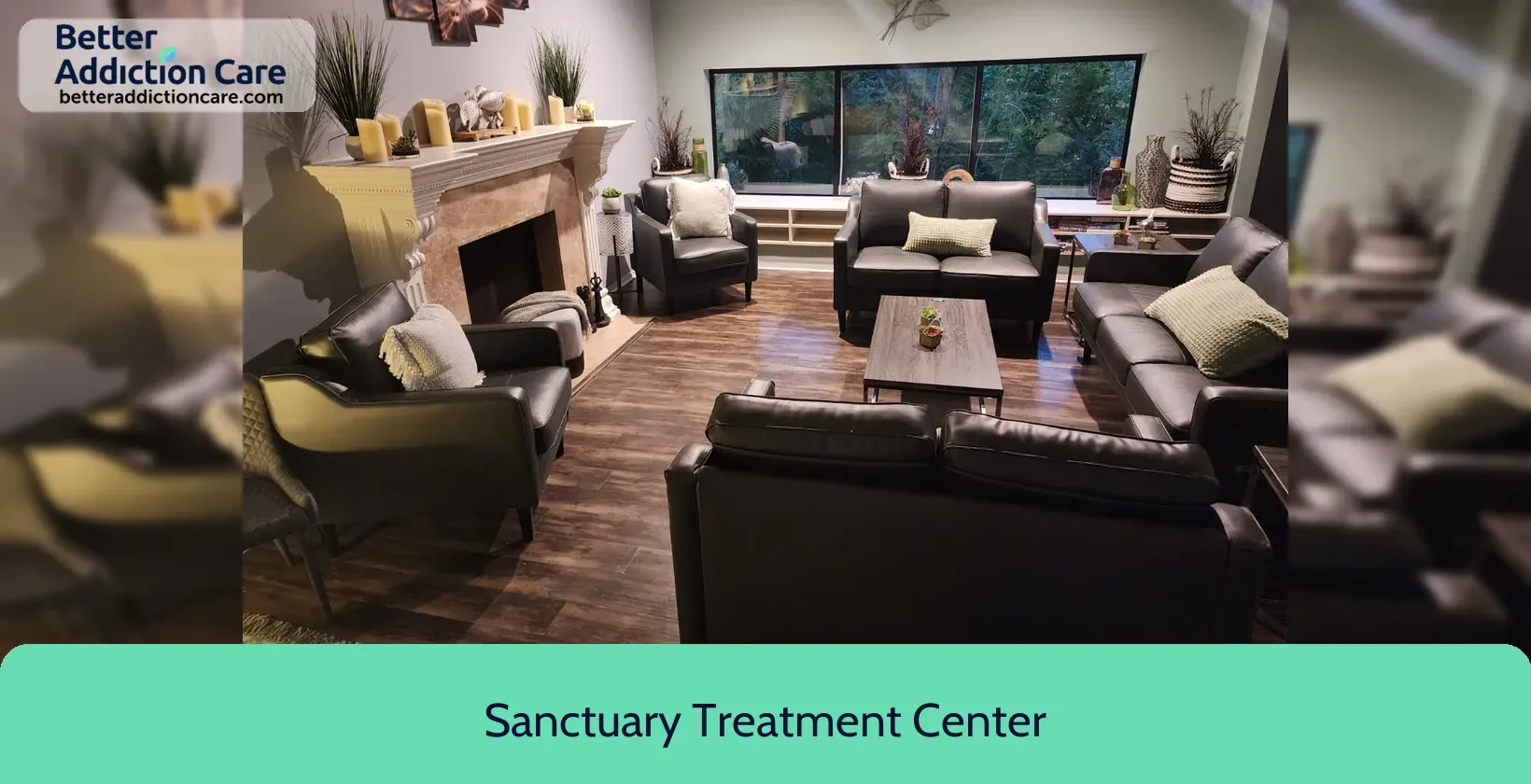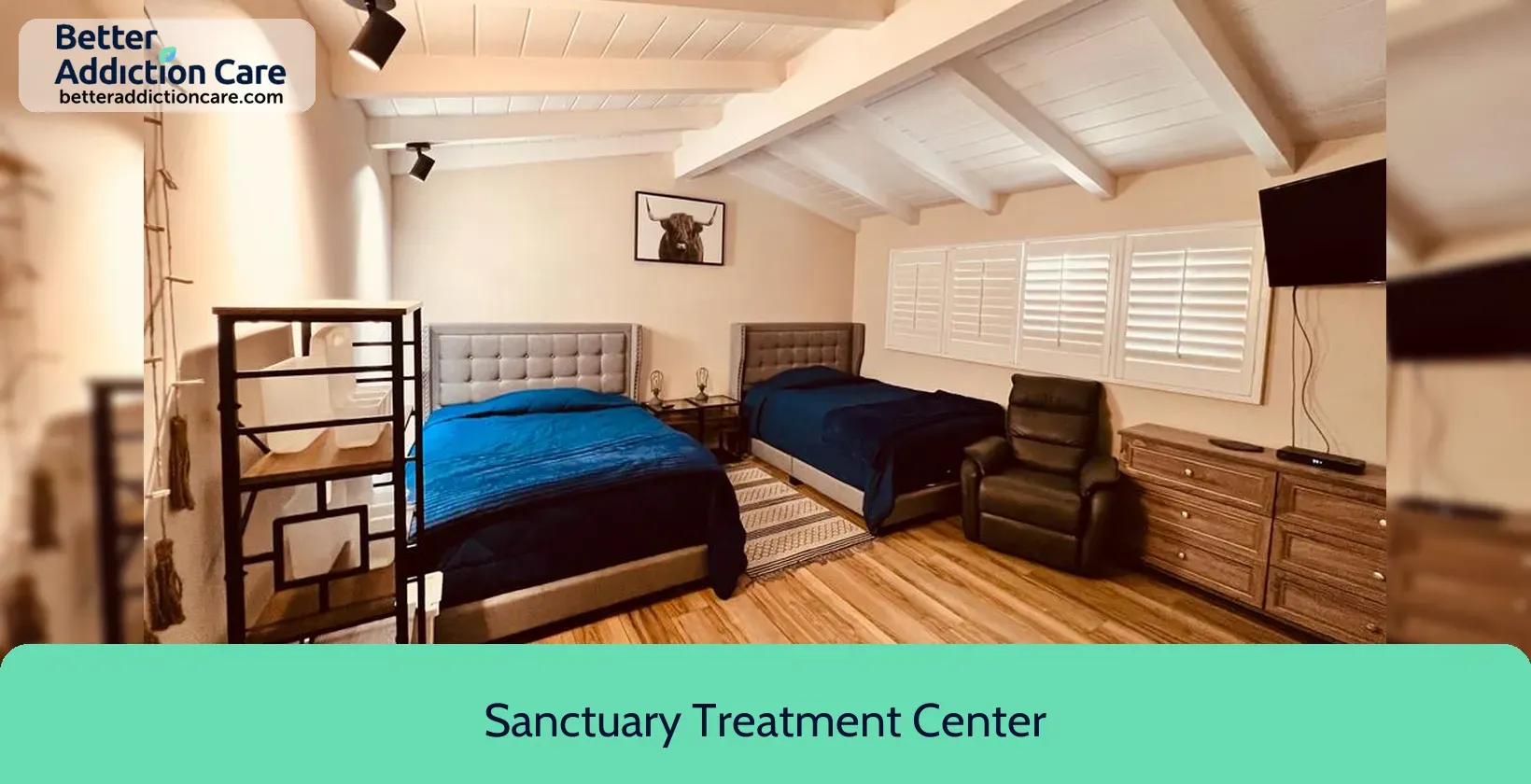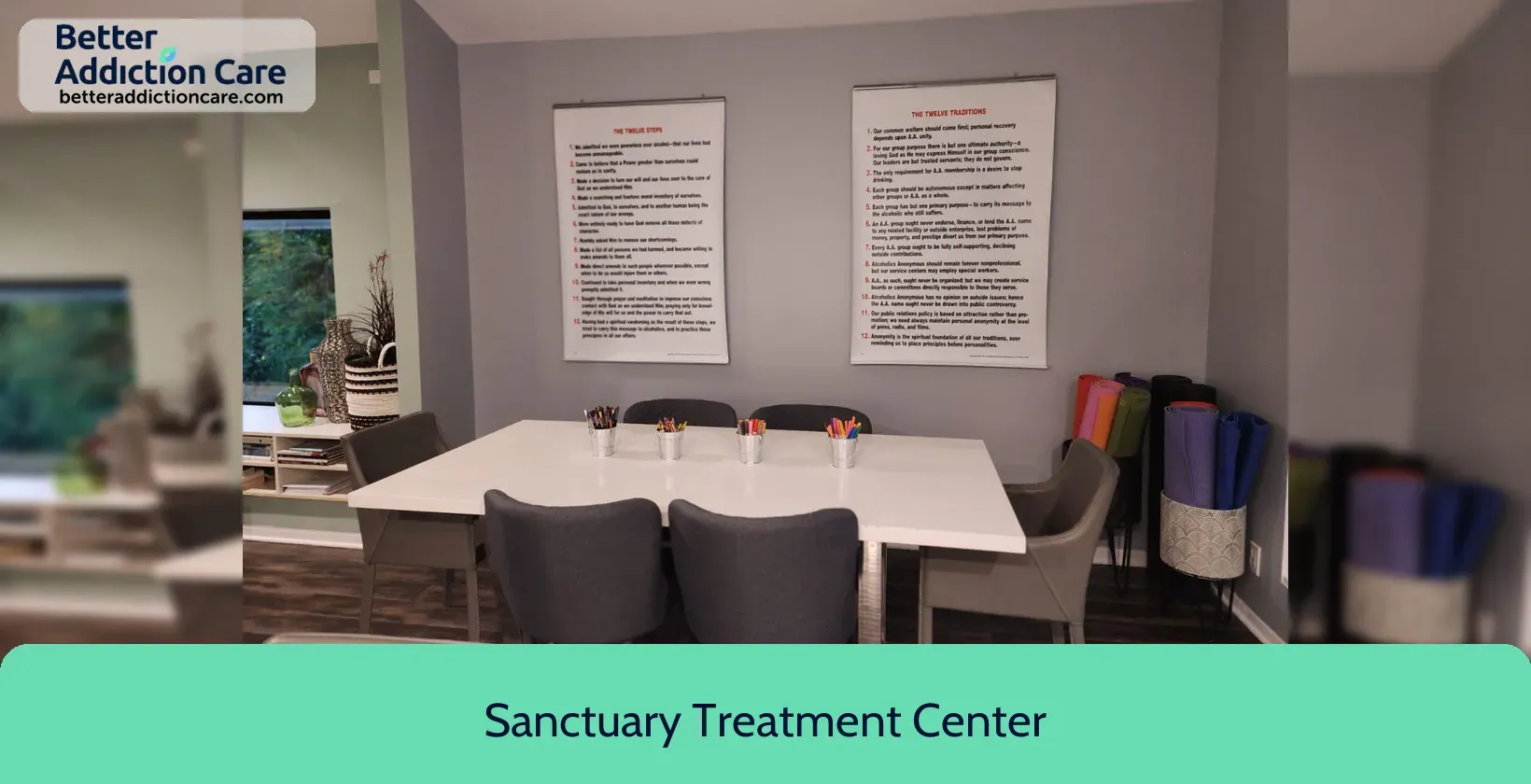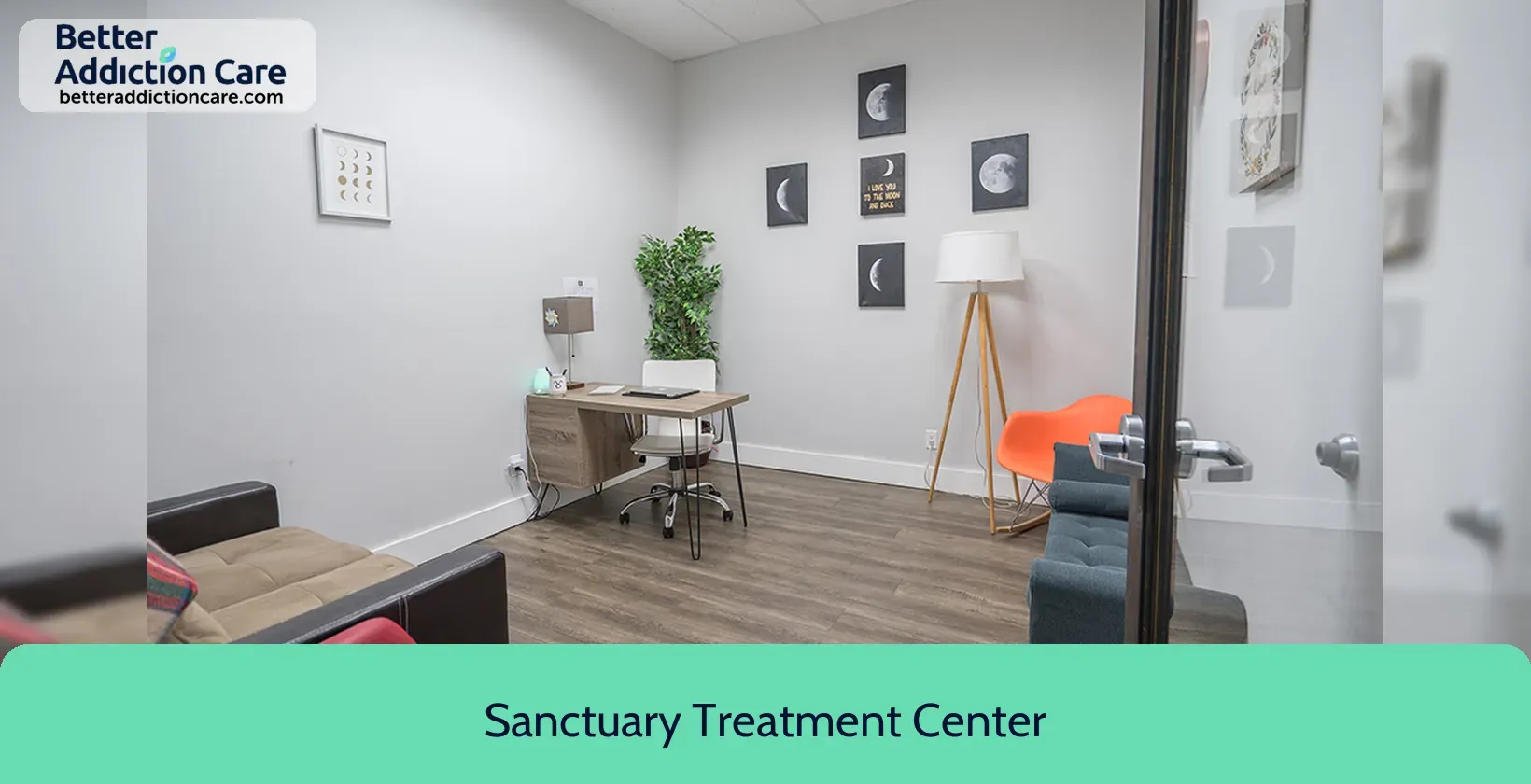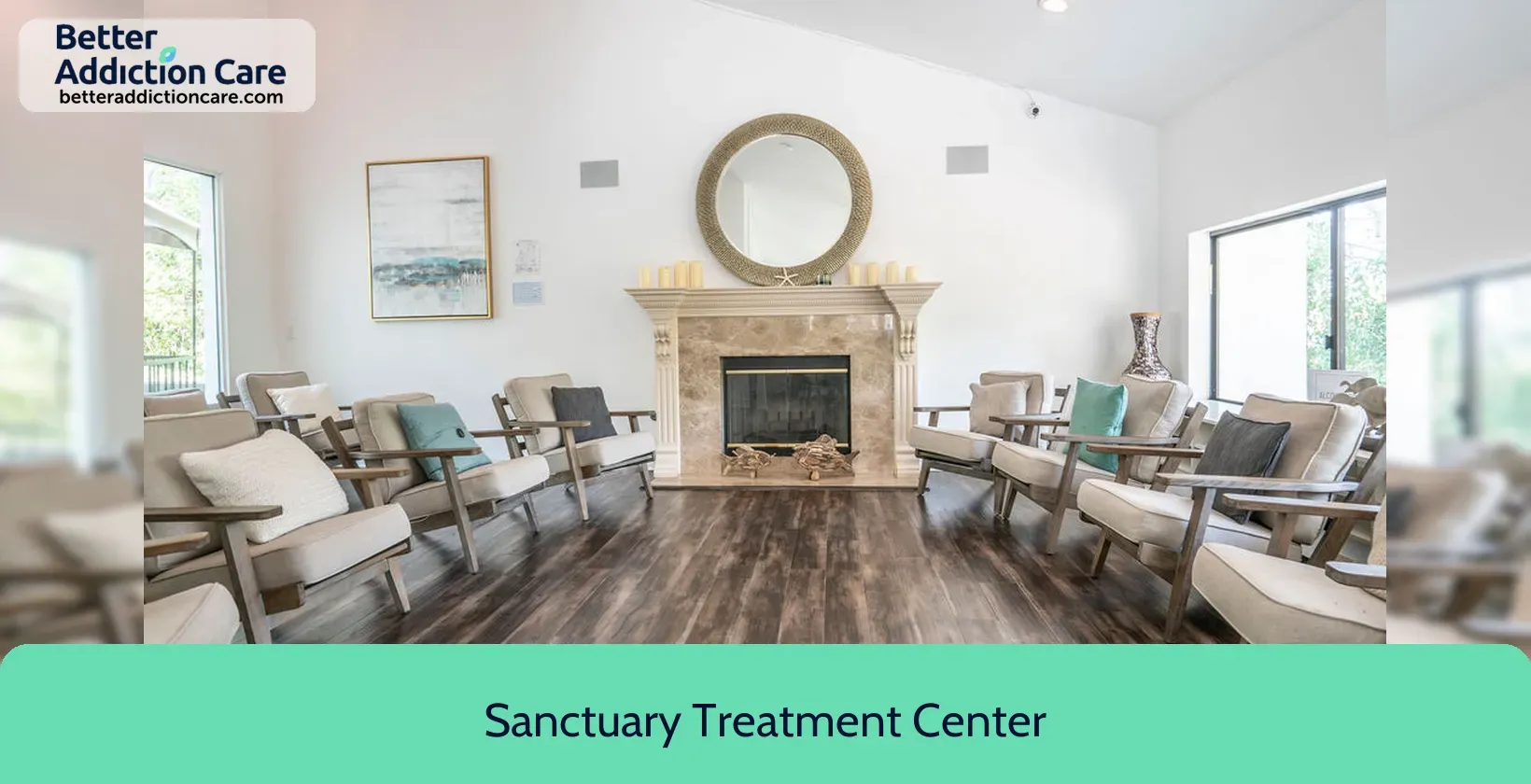Sanctuary Treatment Center
Overview
Sanctuary Treatment Center, located in the serene environment of Tarzana, California, is a specialized rehab facility dedicated to addressing drug and alcohol abuse. The center provides a tranquil and secluded setting where clients can focus on their recovery, far from the distractions of daily life. The admissions team conducts thorough evaluations to ensure that each client is a suitable fit for the program, and insurance is accepted to facilitate access to care.
The journey to recovery at Sanctuary Treatment Center begins with a medically supervised detox program, typically lasting seven to ten days. However, clients can remain in detox longer if necessary, ensuring that they are fully prepared to move on to the next phase of treatment. This initial detox phase is crucial for safely eliminating harmful substances from the body under the careful supervision of medical professionals.
Following detox, clients transition to the inpatient treatment program, which is designed with a client-centered approach. The program offers a variety of therapeutic options, including individual and family therapy. Additionally, the center provides advanced treatments such as Transcranial Magnetic Stimulation (TMS) for individuals with treatment-resistant disorders. TMS is effective in stimulating underactive areas of the brain that may contribute to co-occurring disorders like anxiety and depression. Neurofeedback is also available, allowing therapists to monitor brain activity and adjust treatment plans accordingly.
For those who require flexibility, Sanctuary Treatment Center offers an outpatient treatment program that mirrors the therapies and services provided in the inpatient setting. This includes dual diagnosis treatment, which addresses both substance abuse and co-occurring mental health disorders.
Throughout the treatment process, individualized treatment planning and aftercare support are emphasized. Clients learn essential relapse prevention skills and benefit from peer support, helping them to maintain their recovery long after leaving the center.
Sanctuary Treatment Center stands out for its intimate setting, with only six beds available across its facilities. This ensures that clients receive personalized attention and can develop strong connections with both their peers and the dedicated staff. The center's commitment to individualized care is reflected in its treatment planning, offering multiple pathways to recovery so that each client can find the approach that works best for them.
Sanctuary Treatment Center is proudly LegitScript verified as of November 2019 and holds a state license in California, demonstrating its adherence to the highest standards of care and regulatory compliance.
Sanctuary Treatment Center at a Glance
Payment Options
- Cash or self-payment
- Private health insurance
- Monthly
- Self-pay options
- Aetna
Assessments
- Comprehensive mental health assessment
- Comprehensive substance use assessment
Age Groups
- Young adults
- Adults
Operation
- Private for-profit organization
Highlights About Sanctuary Treatment Center
7.12/10
With an overall rating of 7.12/10, this facility has following balanced range of services. Alcohol Rehabilitation: 8.00/10, Drug Rehab and Detox: 6.00/10, Insurance and Payments: 6.67/10, Treatment Options: 7.82/10.-
Alcohol Rehabilitation 8.00
-
Treatment Options 7.82
-
Insurance and Payments 6.67
-
Drug Rehab and Detox 6.00
Accreditations
State department of health:

Government agencies issue State Licenses, granting rehabilitation organizations permission to operate their businesses lawfully within specific geographic regions. The specific licenses needed for legal operation are typically determined by the type of rehabilitation program offered by the facility and its physical location.
Registration: 190891AP
LegitScript:

Only programs and services that successfully navigate a stringent application process launched in 2018 are granted LegitScript certification. This stringent process ensures that only reputable providers of mental health and co-occurring substance abuse treatment are eligible to be featured on Google's network while complying with HIPAA privacy laws.
Treatment At Sanctuary Treatment Center
Treatment Conditions
- Mental health treatment
- Alcoholism
- Opioid Addiction
- Substance use treatment
- Co-occurring Disorders
Care Levels
- Luxury Treatment
- Detoxification
- Aftercare
- Hospital inpatient treatment
- Hospital inpatient detoxification
Treatment Modalities
- Individual psychotherapy
- Group counseling
- Family counseling
- Life Skills
- Cognitive Behavioral Therapy
Ancillary Services
Languages
- Spanish
Special Programs
- Clients who have experienced trauma

Additional Locations
Common Questions About Sanctuary Treatment Center
Contact Information
Read our Most Recent Article About Drug Addiction
DISCLAIMER: The facility name, logo and brand are the property and registered trademarks of Sanctuary Treatment Center, and are being used for identification and informational purposes only. Use of these names, logos and brands shall not imply endorsement. BetterAddictionCare.com is not affiliated with or sponsored by Sanctuary Treatment Center.

